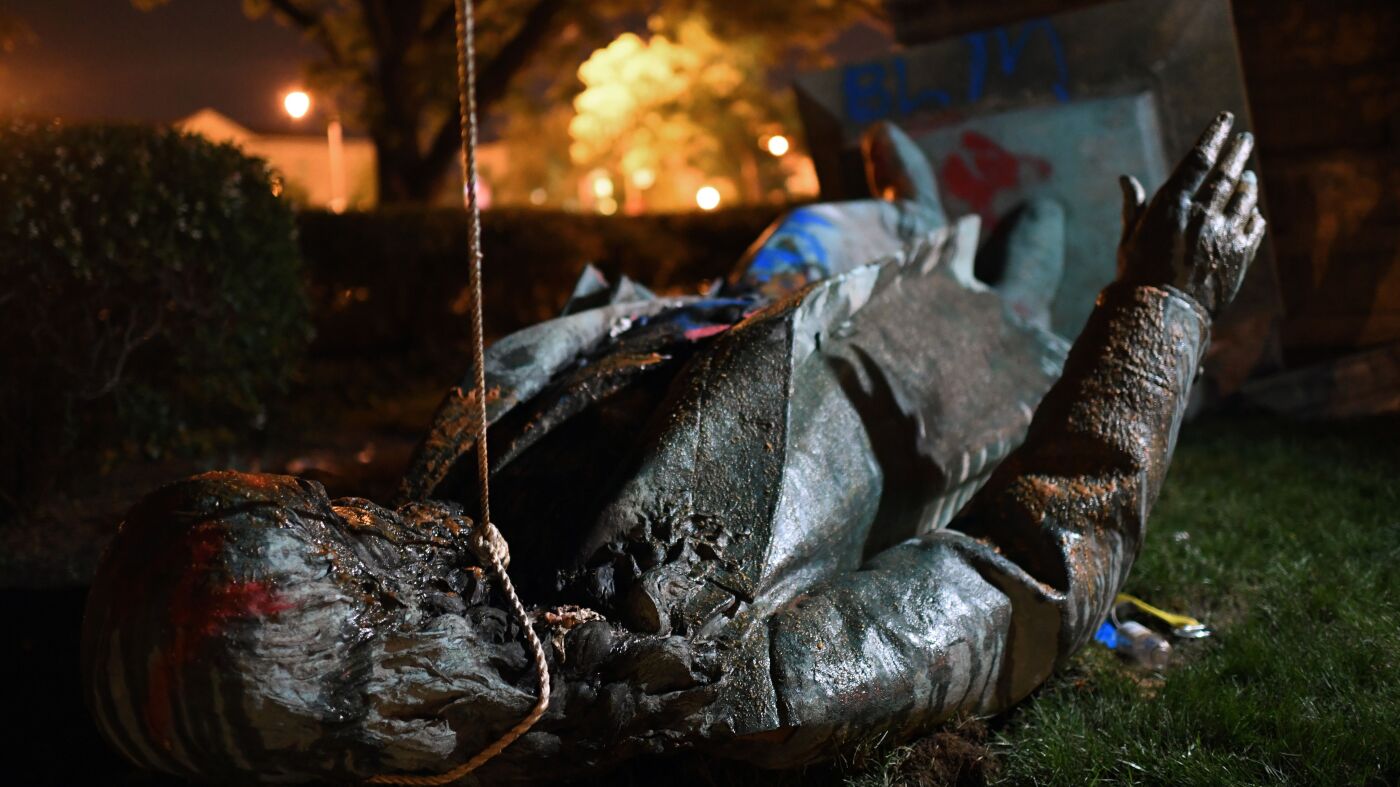National Park Service to Reinstall Toppled Statue of Confederate General Albert Pike in Washington, D.C.
Washington, D.C., August 5, 2025 – The National Park Service (NPS) announced on August 4 that it will restore and reinstall a bronze statue of Confederate General Albert Pike, which was toppled and set on fire by protesters during the Black Lives Matter demonstrations on June 19, 2020. The statue, the only outdoor monument of a Confederate figure in the U.S. capital, is being restored at the NPS Historic Preservation Training Center in Frederick, Maryland, with plans for reinstallation in Judiciary Square by October 2025.
The decision aligns with federal historic preservation laws and two executive orders issued by President Donald Trump in March 2025: one titled “Making the District of Columbia Safe and Beautiful” and another called “Restoring Truth and Sanity to American History.” These orders aim to reinstate monuments removed since 2020, which the administration claims were taken down to “perpetuate a false reconstruction of American history.” The NPS stated that the restoration will involve repairing the statue’s damaged masonry plinth, addressing broken stone, mortar joints, and mounting elements, with crews beginning site preparation shortly.
Albert Pike, a Massachusetts native who settled in Arkansas, served as a Confederate general during the Civil War, leading a regiment of Native Americans allied with the Confederacy. He was also a prominent Freemason, serving 32 years as Sovereign Grand Commander of the Scottish Rite. The statue, authorized by Congress in 1898 and dedicated in 1901, was commissioned by the Freemasons to honor Pike’s contributions to the organization, depicting him in civilian attire. Inscriptions describe him as a poet, scholar, soldier, jurist, orator, philanthropist, and philosopher, omitting direct reference to his Confederate service.
The reinstallation has sparked significant controversy. Critics, including Washington, D.C. Delegate Eleanor Holmes Norton, argue that Confederate statues belong in museums, not public spaces that imply honor. Norton, who has advocated for the statue’s removal since 1992, condemned the decision, stating, “Pike served dishonorably. He took up arms against the United States, misappropriated funds, and resigned in disgrace after committing a war crime.” She plans to reintroduce legislation to permanently remove the statue and donate it to a museum. Allegations of Pike’s involvement with the Ku Klux Klan, though disputed by Freemasons and some historians, further fuel opposition.
The statue’s toppling in 2020 followed nationwide protests after the murder of George Floyd, with demonstrators using ropes to pull it down and setting it ablaze near the Metropolitan Police Department headquarters. Then-President Trump called the act a “disgrace,” criticizing D.C. police for not intervening. Supporters of the reinstallation, including White House official Lindsey Halligan, argue that the statue, funded by private Masonic organizations, represents Pike’s scholarly and Masonic legacy, not his Confederate ties. They cite Trump’s executive orders as a commitment to historical preservation and the rule of law.
Public sentiment on X reflects deep division. Some users support the restoration, viewing it as preserving history, with one stating, “It’s about time we stop erasing our past, good or bad.” Others decry it as glorifying a divisive figure, with a post noting, “Reinstalling a Confederate statue in 2025 is a slap in the face to progress.” The debate echoes broader tensions over Confederate symbols, underscored by Trump’s earlier moves to restore names like Fort Bragg and Fort Benning to military bases, despite federal laws prohibiting honors for Confederate leaders.
The NPS’s decision marks a flashpoint in the ongoing national reckoning over Confederate monuments, balancing historical preservation with the moral implications of commemorating figures tied to slavery and rebellion. As the reinstallation nears, the controversy is likely to intensify, with Norton’s proposed bill and public reactions shaping the discourse.
Sources: NBC News, WTOP, NPR, POLITICO, Reuters, The New York Times, Washington Examiner, Fox News
